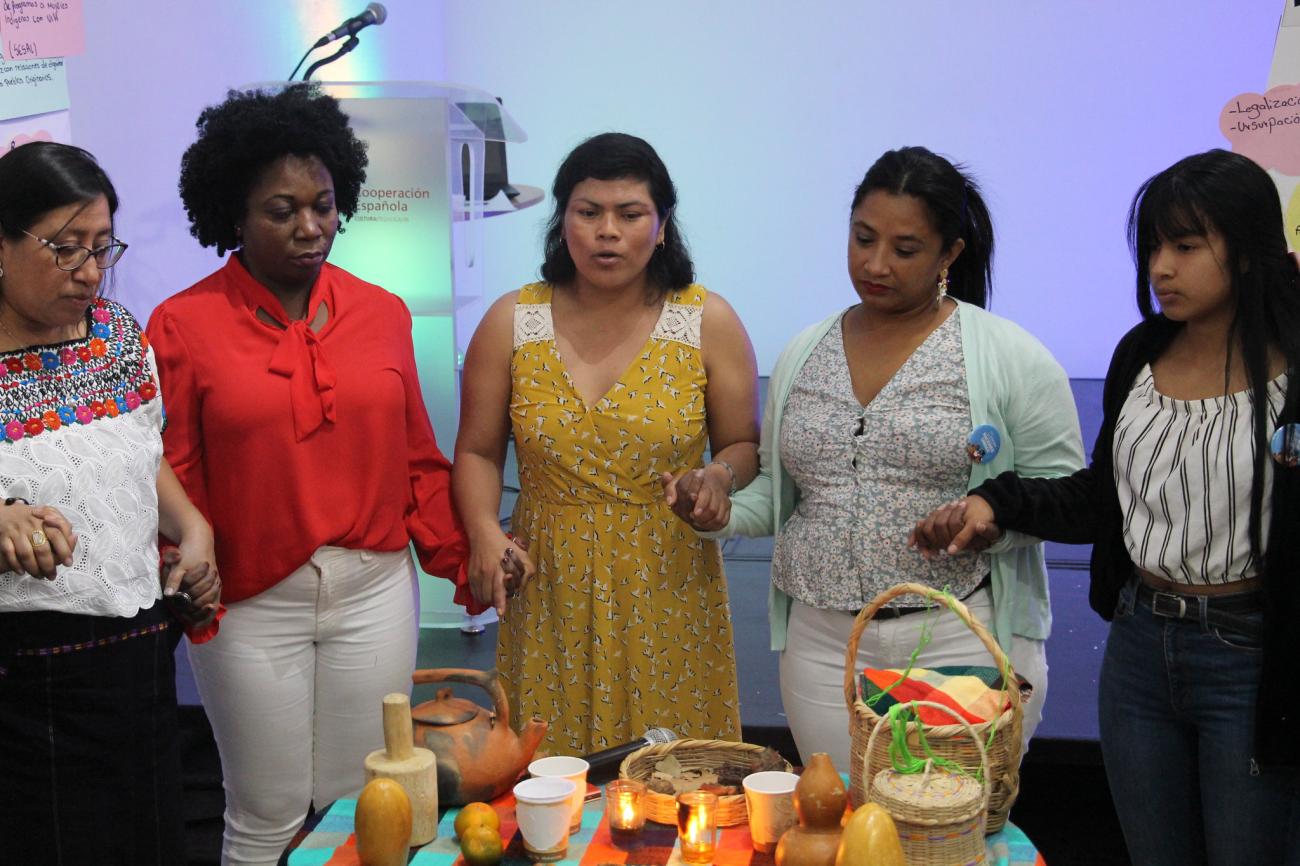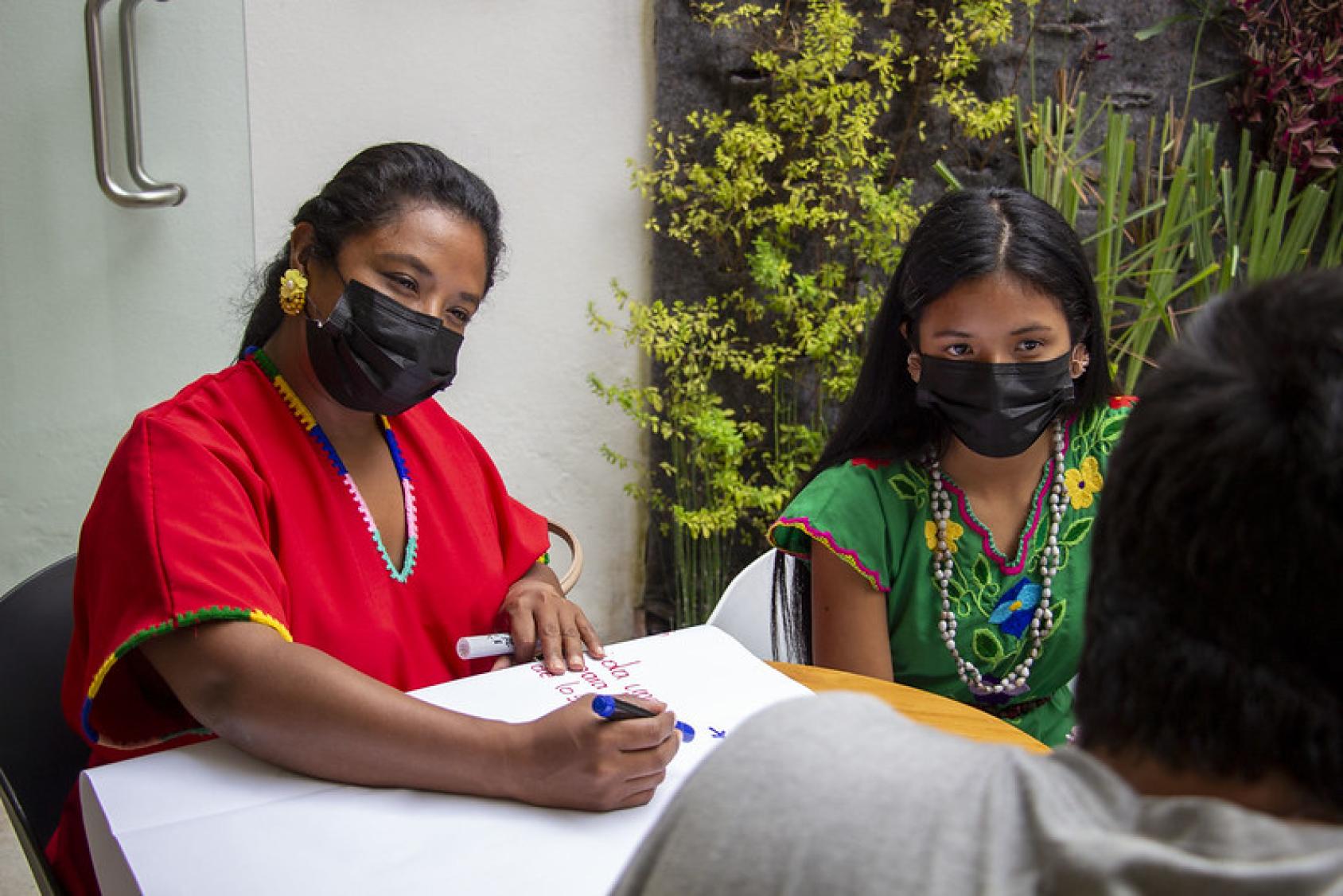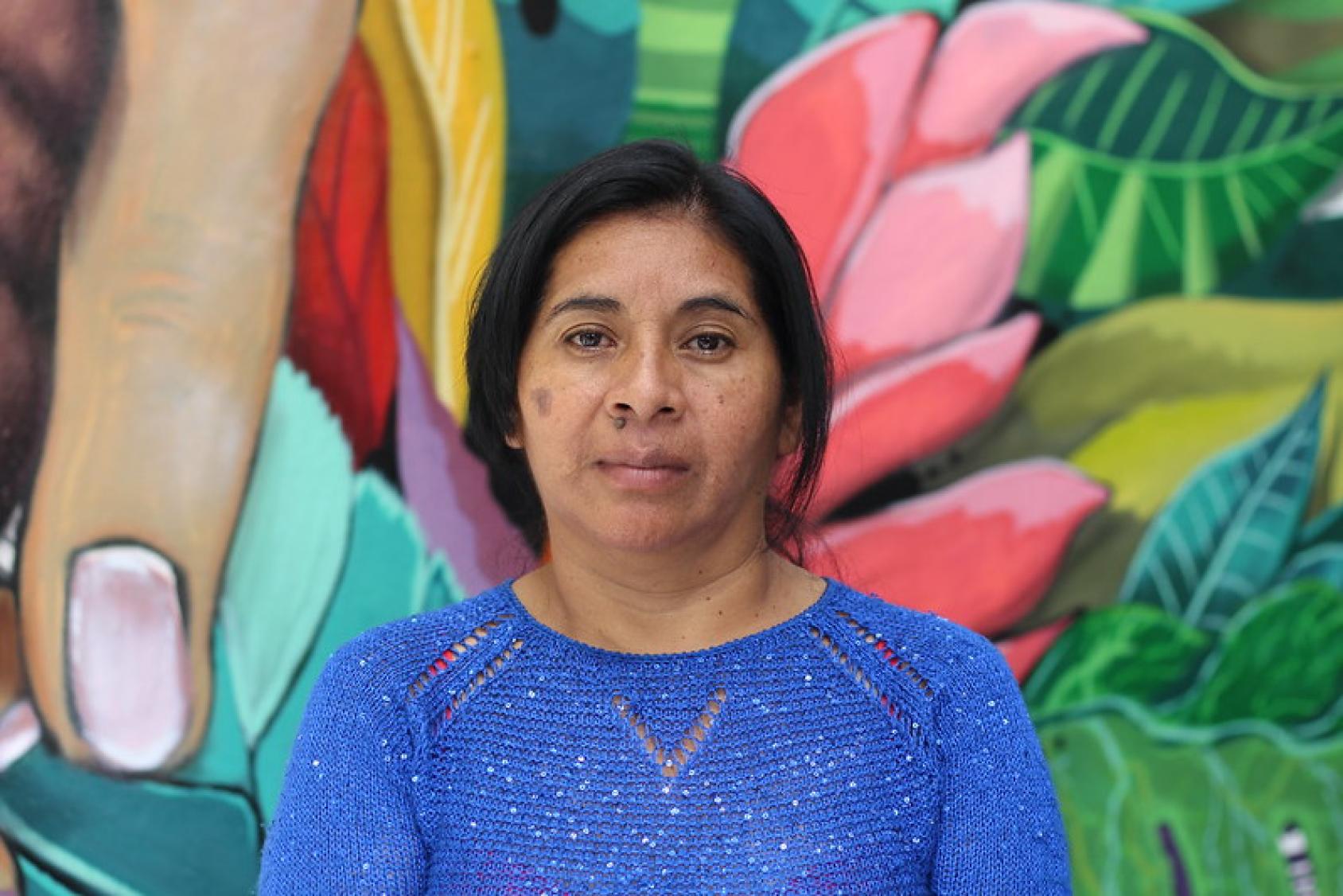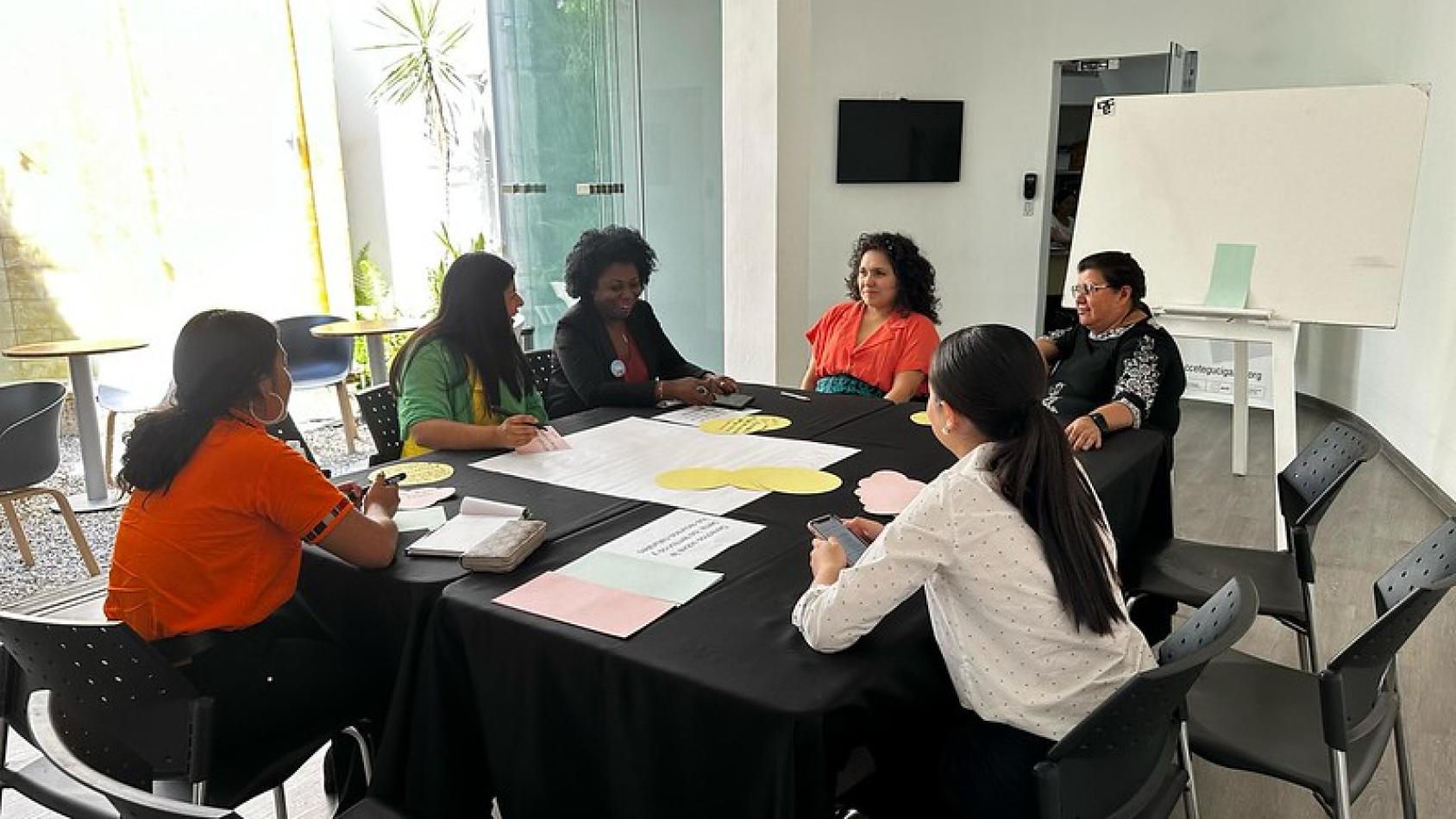Honduras: Indigenous and Afro-descendant Communities Lead the Way to Equality

In Honduras, there are nine indigenous and Afro-descendant peoples representing 7 per cent of the population. All of them face distinct but related, and often intertwined, challenges centered around discrimination, access to basic services, preservation of culture and languages, economic inclusion, citizen participation, land, and gender equality.
As the world observes the International Day of the World’s Indigenous Peoples, it’s crucial to recognize the vital contributions and resilience of these communities. The UN in Honduras prioritizes initiatives aimed at addressing the unique challenges they face. To drive these initiatives forward, the Resident Coordinator's Office (RCO) in Honduras plays a pivotal role, fostering collaboration across all UN agencies in Honduras.

Empowerment of indigenous and afro-descendant women
Efforts to empower indigenous and Afro-descendant women have equipped them with the tools and platforms to advocate for their communities and lead efforts to overcome the persistent challenges they face.
Through an RCO initiative, the UN Inter-Agency Gender Group, indigenous and Afro-descendant women leaders, the Spanish Cultural Center in Tegucigalpa (CCET), the European Union, and the international non-governmental organization (NGO) Ayuda en Acción, came together with the shared goal of addressing the unique challenges faced by Indigenous and Afro-descendant women and exploring concrete solutions.
Guided by the provisions of General Recommendation 39 of the Convention on the Elimination of All Forms of Discrimination Against Women, women from the nine indigenous and Afro-descendant peoples strengthened their knowledge of human rights, migration, forced displacement in the Honduran context, and indigenous governance. As a result, women from these communities developed a comprehensive national strategy to address the inequalities they face.
This strategy focuses on combating discrimination in workplaces and schools, safeguarding and promoting indigenous languages and traditions, expanding educational access through new community schools, developing culturally appropriate healthcare programmes, and revitalizing traditional healing practices.
"This strategy empowers us to advocate for our communities and lead the efforts to overcome the challenges we face. This marks a crucial step toward securing the recognition and protection of our rights and cultural heritage," reflected Reina Corea, a Lenca leader of the Alliance of Indigenous Women.

Promotion and preservation of indigenous languages and cultural heritage
Another significant effort has focused on the preservation and promotion of indigenous languages. A workshop on the Decade of Indigenous Languages brought together representatives of the nine indigenous and Afro-descendant peoples of Honduras and representatives of public, private, and academic institutions. This workshop was essential in developing a national action plan aligned with the Global Action Plan to promote linguistic diversity.
"Honduras is a multilingual country, so through this plan we hope to influence it to be declared as such in order to preserve our languages and access information and services in our mother tongues," commented John Wood, a young Miskito linguist during his participation in the event.
Through collaborative efforts across sectors, the visibility and appreciation of indigenous and Afro-descendant heritage have been significantly enhanced. For instance, a partnership with the European Union, the Spanish Cultural Center in Tegucigalpa, and the Photo Library of the National Autonomous University of Honduras has notably elevated recognition and respect for these communities. By jointly organizing community-led reflection forums and photographic exhibitions the alliance has showcased the diverse voices, traditions, and perspectives within the country. This collective effort has fostered a deeper understanding of Honduras' rich multiethnic diversity, promoting inclusivity and combating discrimination.

Partnerships for change
The Resident Coordinator's leadership has strengthened the UN's relationship with indigenous and Afro-descendant communities. This collaboration has fostered comprehensive approaches to addressing their complex needs alongside government, international partners, and other stakeholders.
The RCO brings together the efforts of UN entities in Honduras, including the Food and Agriculture Organization (FAO), International Organization for Migration (IOM), Office of the High Commissioner for Human Rights (OHCHR), UN Development Programme (UNDP), UN Office for Project Services (UNOPS), UN Women, and the UN Refugee Agency (UNHCR), to address the community's various challenges. For instance, inter-agency initiatives supported by the Peacebuilding Fund have prioritized the protection of environmental, land, and human rights defenders among the Garifuna and indigenous populations, who are often subjected to displacement and violence.
Furthermore, collaboration with international partners and a shared commitment to inclusive development have been instrumental in crafting a comprehensive approach to protecting and promoting the rights of these communities."These initiatives are a testament to the joint commitment to promote human rights and cultural diversity. We work together to ensure that no one is left behind, especially the most vulnerable communities," commented the European Union Ambassador in Honduras Jaume Segura Socías.
By continuing to support and strengthen these actions, a more equitable and inclusive future can be built for all Hondurans, ensuring that the nation's cultural richness and diversity is protected and valued for future generations. "Our goal is to support and strengthen the capacities of indigenous and Afro-descendant peoples, in particular human rights defenders, women, and children, promoting their full inclusion in all aspects of the country's social, economic, and political life," said Resident Coordinator Alice Shakelford.













